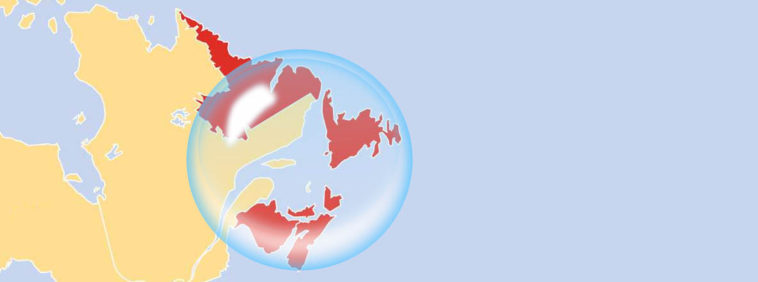Release:
Government is easing some self-isolation requirements for out-of-province rotational workers when they return to Nova Scotia.
A rotational worker is someone who has a set schedule where they alternate between living in Nova Scotia and working outside the province, such as an Alberta oil worker.
The changes are only for rotational workers who are residents of Nova Scotia who travel to another province or territory in Canada to work. They do not apply to rotational workers who work outside of Canada.
“While self-isolation is important, we know it isn’t always easy, particularly for those who travel back and forth from Nova Scotia to other parts of Canada to work,” said Premier Stephen McNeil. “These Nova Scotians play a vital role in our communities and our economy. We want to ensure that the self-isolation requirement does not negatively impact the health, well-being and family lives of rotational workers, so we are making changes.”
Effective immediately, rotational workers are allowed the following activities alone or with their household members:
— interacting with people who live in their household.
Maintaining physical distance from household members is not necessary unless the rotational worker becomes unwell. Household members do not need to self-isolate unless they become unwell
— spending time outside on their own property
— going for a drive
— going for a walk, run, hike, bike or ATV ride for exercise and recreation off their property (if they encounter people from outside their household, they must wear a mask and maintain a distance of two metres)
— visiting a park, beach or other outdoor public space (if they encounter people from outside their household, they must wear a mask and maintain a distance of two metres)
— spending time at their cabin or vacation home (or a rental location) within the province, following the same rules as if at home
— dropping off and picking up household members at school, work or recreational activities without getting out of the vehicle
— no-contact pick-up of groceries or other items purchased online without getting out of the vehicle
— attending a drive-in theatre without getting out of the vehicle
— going through a drive-thru, for example at a restaurant or bank
Effective Monday, Sept. 14, the following activities are allowed:
— attending necessary (urgent and routine) medical appointments. This includes appointments with physicians and nurse practitioners, dentists, optometrists and other regulated health professionals where in-person treatment is required
The following activities continue to be restricted:
— entering public places (e.g. schools, grocery stores, shopping malls, banks, religious institutions, restaurants/bars)
— attending indoor and outdoor gatherings
— visiting people from outside their household
— allowing people from outside their household to visit them on their property or in their home
— volunteering or working in any capacity that requires them to be in contact with people outside their household
Quote:
“There are many rotational workers in the province and exempting all of them from the requirement to self-isolate could significantly increase the risk to Nova Scotians,” said Dr. Robert Strang, Nova Scotia’s chief medical officer of health. “We have expanded the list of allowable activities that focuses on the mental and physical well-being of rotational workers while ensuring we minimize the risk of transmission within Nova Scotia.”
Additional Resources:
Government of Canada: https://canada.ca/coronavirus
Government of Canada information line 1-833-784-4397 (toll-free)
The Mental Health Provincial Crisis Line is available 24/7 to anyone experiencing a mental health or addictions crisis, or someone concerned about them, by calling 1-888-429-8167 (toll-free)
Kids Help Phone is available 24/7 by calling 1-800-668-6868 (toll-free)
For help or information about domestic violence 24/7, call 1-855-225-0220 (toll-free)
For a list of regulated health professionals, visit: http://www.nsrhpn.ca/member-listing/

